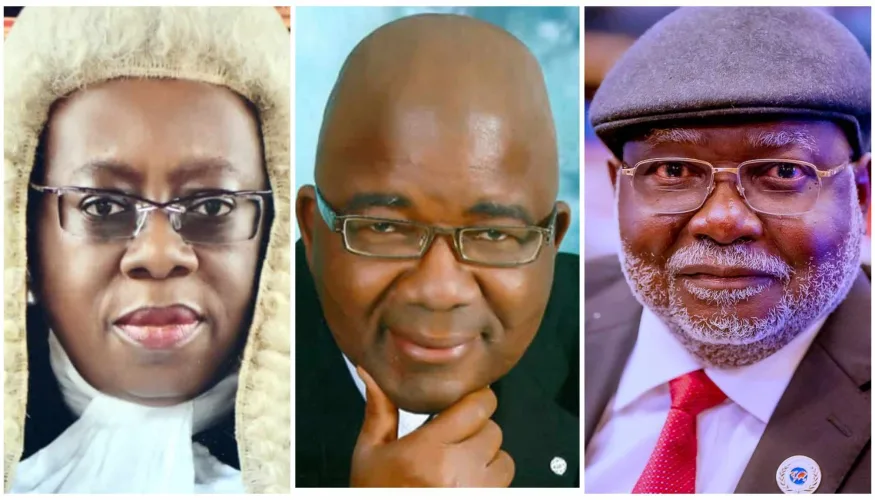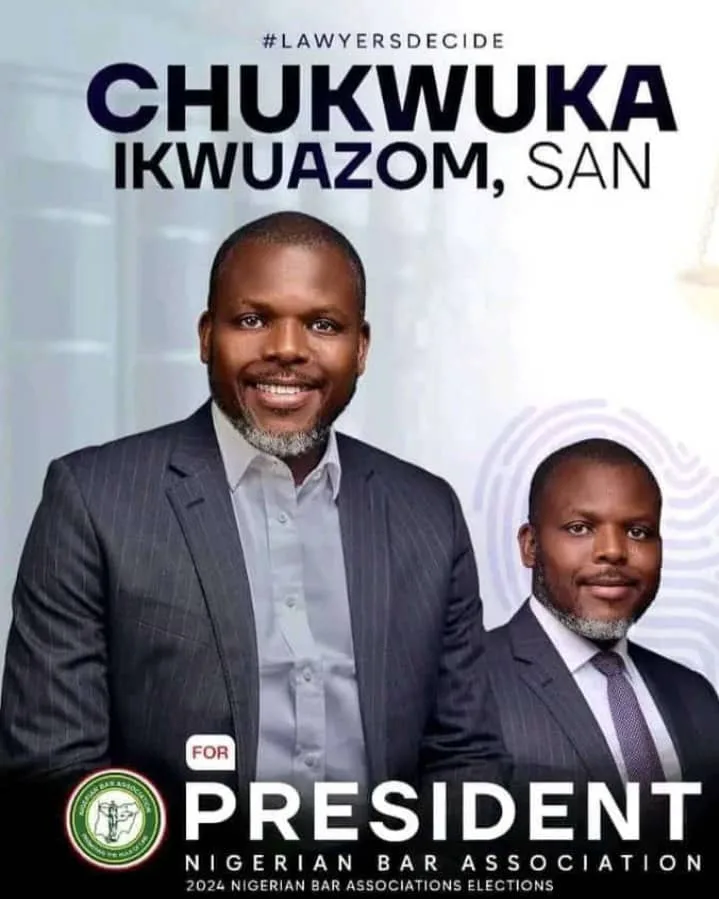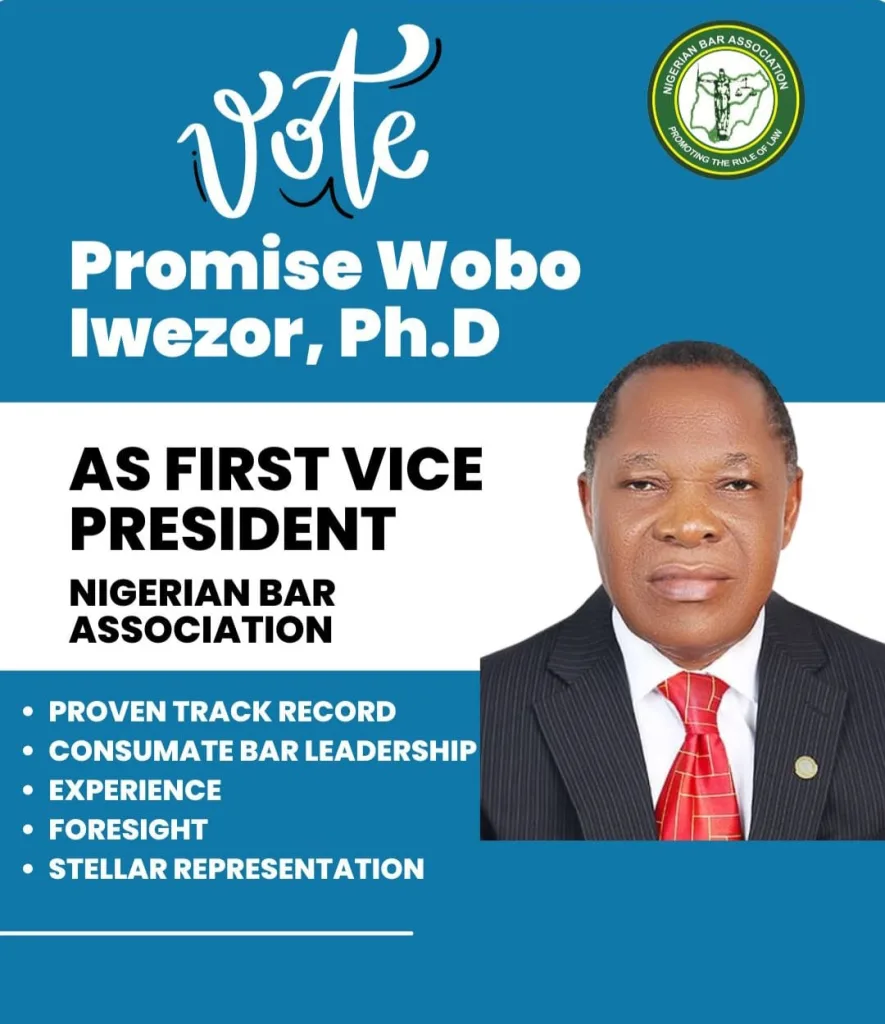‘INCOMING CJN, JUSTICE KEKERE-EKUN IS NOT A POLITICIAN,’ SAYS AWOMOLO
-
YOU MAY DISLIKE JUSTICE ARIWOOLA IF YOU RELY ON SOCIAL MEDIA
In this interview, Chairman of the Body of Benchers, CHIEF ADEGBOYEGA AWOMOLO SAN, assessed the two-year tenure of the outgoing Chief Justice of Nigeria, Justice Olukayode Ariwoola and identified some of the challenges in the judiciary. He also gave insight on what to expect from the administration of his likely successor, Justice Kudirat Kekere-Ekun.
Justice Olukayode Ariwoola was appointed Acting CJN on June 27, 2022 when the Supreme Court of Nigeria was in turbulence. Looking back today, would you say he has successfully stabilised the court and by extension, the judiciary?
Justice Olukayode Ariwoola became the CJN at a time when all the justices of the Supreme Court rose to protest or opposed the administration of the Supreme Court by his predecessor, Justice Ibrahim Tanko.
What happened at the time has no precedent in Nigerian history. It has never happened that justices of the Supreme Court will openly or in a way, express their grievance against the court’s administration. Be that as it may, one can see today that the outgoing CJN has been able to stabilize the operations of the Supreme Court, particularly the justices, now showing solidarity and cooperation as they desire. I recalled at a meeting, specifically at a valedictory court session, Justice Ariwoola expressed his satisfaction with the justices of the Supreme Court cooperating with him in the new reforms that he introduced to the administration of justice. However, it is on record that during his ongoing tenure, when one of them was retiring, he expressed some natural reservations. But the truth is that notwithstanding that event, he has been able to stabilise and restore camaraderie to the folds of the justices of the Supreme Court. As I see him, he is not a big boss. He is one amongst the equal. For him to be able to galvanize support, respect, and uphold the integrity and honour of the Supreme Court, it is a very laudable achievement.
How has his administration fared in terms of S’Court’s discharge of its duties in the last two years?
The government of the Federal Republic of Nigeria involves or includes the executive, the legislature and the judiciary. It is a very herculean task for somebody to be able to maintain balance. This is because one arm is not created to be antagonistic to the other or to be in complete competition or opposed to the other. I can say that his tenure has been able to foster mutual respect between the executive and the judiciary, between the judiciary and the legislature, even when the decision of the court did not favour the executive. Let me give you an instance. Look at the judgment of the Supreme Court concerning the Naira redesign policy of President Muhammadu Buhari government. The Supreme Court unanimously held that the old banknotes should remain in use on the account that the Central Bank of Nigeria, CBN, introduced the policy without consulting the Council of States, the Federal Executive Council, the National Security Council, the National Economic Council, Civil Society Organisations and other relevant stakeholders and that the government failed to give valid notice to all the federating units before it decided to withdraw the old banknotes from circulation and introduced new ones. Even though the judgment was not a particularly pleasant judgment for the executive, there was no rancour between them. That is how it ought to be. The judiciary must be able to stand high. The Supreme Court is not just a court of law, but also a court of policy. You can see that the policy aspect exemplified by the Supreme Court in that decision was applauded all over the world. No one has been able to come out to criticize it in such a way as to show that the Supreme Court was biased or that it was not acting in its judicial capacity. So, for me, it takes the leadership, I mean, impartial leadership, objective leadership and rarely very focused leadership for the court to have done that.
As a senior lawyer of 46 years, how would you assess the two-year tenure of the outgoing CJN, Justice Ariwoola from the perspective of the judicial reforms he introduced?
What I can say to you is that the period he served as the CJN is very short and he could not have made significant judicial reforms. However, I can say that he has endeavoured to ensure that the integrity of the judiciary at all levels is upheld. Yes, we have these cases of conflicting judgments and somehow you will want to look at the judgment of the court below that have created problems for the judiciary. He handled them with maturity. He handled them with experience and as the foremost judicial officer in this country. I believe he has done very well. He has put his name in the sands of time. Perhaps, you can say that he has achieved what no one has been able to achieve before. That is, he was able to constitute a full complement of the Supreme Court. If other people didn’t think about it, he has thought about it. If other CJNs didn’t consider it necessary, he has considered it necessary and achievable and he has achieved it. So, what we need to say is: Well done, sir.
What can you say about the person of the CJN?
He is a very credible man whose word is his bond. He is a man of integrity. You may not like his style, if you are going to rely on the few negative things in the social media. Oh, you will paint him or see him as a devil’s incarnate. But for me, he is a man of integrity and I’m impressed with how he upheld the honour of the office of the Chief Justice of Nigeria in his democratic governance. For me, he has done very well.
Apart from the short tenure you mentioned, what other factors would you regard as some of his challenges during his tenure?
What I can say is that the challenges of the judiciary, not just the Supreme Court but the judiciary as an arm of government, is political interference. It has remained consistent and persistent and our judges have done everything in the world to resist them. But let politicians leave the judiciary alone. Let them not carry their politics to the judiciary. I know there was one justice of the Supreme Court in this country who alleged that a Minister came to his house in the night and then mentioned the name of the President like the President wants this. Let us not hear about that again. Let the executive mind its business. If politicians have done their rough jobs, let them face the consequences. One of the problems of our democracy in this country is that the political class is not disciplined, from leadership to the bottom. They always want to manoeuvre because the stakes are high. Its money, money, money. Power, power, power. If only the political class can apply their rules and ply their operations according to their rules, there would be little or no problems.
Nomination of candidates, for instance, is at the discretion of the chairman of the party; candidature of a party is at the whims and caprices of party leadership. They corrupt the process, they also corrupt the judiciary. And my belief is that the judiciary must be left alone to perform its judicial duties. Let there be no political interference. Let there be no legislative interference. Let there be no executive interference. Let there be no intimidation. Let there be obedience to judgments and rulings of court, whether palatable or not palatable. It is not for the politicians to say: ‘Oh, this judgment is stupid. This court has no jurisdiction.’ We hear it everyday. But you find that people who say these things are people who have little knowledge about the law.
Let people accept judgments and rulings of court in good faith. If you have objection to the decision of the court, appeal and stop parading yourself and somebody canvassing some law points. And, of course, my advice to my colleagues at the bar is this: let us respect ourselves. Let us respect and uphold the dignity and honour of the legal profession. I am not talking of any category of lawyers— From the highest rank to the lowest rank. Let us respect the dignity and honour of the legal profession, no matter how much you are getting.
What legacy do you think the CJN will be leaving behind?
He will be leaving behind a judiciary that is not divided and that is coherent. A judiciary that is respected. A judiciary that is honest. A judiciary that he can be proud of. And if he has been involved in all kinds of unethical or corrupt things, he would be leaving behind a corrupt judiciary. But, that is not the story. I believe that he is leaving the judiciary better than he met it. He will be leaving the judiciary that has a future; but it is a judiciary that politicians must leave alone to do its job.
Justice Kekere-Ekun is the next most senior Justice of the Supreme Court and would most likely become CJN by the age-long tradition in the bench. What advice would you give her if she eventually becomes the new CJN?
My advice is that Justice Kudirat Kekere-Ekun should please, within the court, outside the court, uphold the integrity, honour and all that it takes to have a credible judiciary. I am convinced in my mind that she is going to be an excellent Chief Justice of Nigeria. She is going to create an impression that has never been created before or that had been created by Justice Aloma Mariam Muhktar, a former Chief Justice of Nigeria. They are of the same mould as I see them.
I’m not particularly close to her but from my little experience, or knowledge of the way I see her, she is a disciplinarian. She is disciplined in every respect. She has a very respectable husband and a very solid home.
She is not frivolous in any way. She is apolitical. In other words, she is not a politician. She is free of political encumbrance or baggage. She will be very professional. She will be a disciplined Chief Justice of Nigeria and she will uphold the integrity and honour of the court and the judiciary as a whole. Nobody should take her for granted at all. Nobody should assume that he can control her. No, you cannot.
- This interview was originally published by VANGUARD LAW AND HUMAN RIGHTS
To join our Telegram platform, click here
COPYRIGHT 2022 CITY LAWYER. Please send emails to citylawyermag@gmail.com. Join us on Facebook at https://web.facebook.com/City-Lawyer-Magazine-434937936684320 and on “X” (TWITTER) at https://twitter.com/CityLawyerMag. To ADVERTISE in CITY LAWYER or for Special Features, please email citylawyermag@gmail.com or call 08138380083.
All materials available on this Website are protected by copyright, trade mark and other proprietary and intellectual property laws. You may not use any of our intellectual property rights without our express written consent or attribution to www.citylawyermag.com. However, you are permitted to print or save to your individual PC, tablet or storage extracts from this Website for your own personal non-commercial use.



